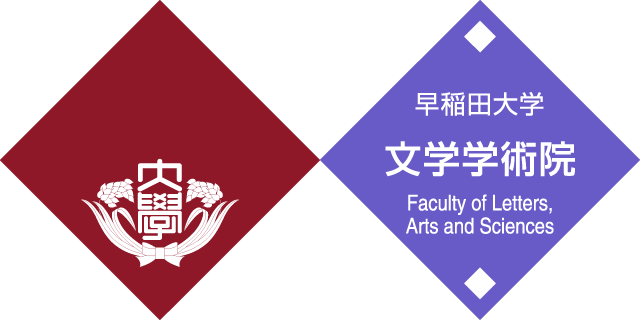- News
- Online Workshop Report – Sound and Divination in Ancient Japan
Online Workshop Report – Sound and Divination in Ancient Japan

- Posted
- Tue, 02 Feb 2021
Online Workshop
Sound and Divination in Ancient Japan
On December 20, 2020 (Sun.), Michael Como (Associate Professor, Columbia University), who is visiting Waseda University for research as part of this year’s Ryusaku Tsunoda Memorial Program (a fellowship program for researchers from outside Japan), was invited to speak at the Global Japanese Studies Model Unit online workshop “Sound and Divination in Ancient Japan.” Professor Akio Kawajiri of Waseda University’s Faculty of Letters, Arts and Sciences served as the event coordinator and the moderator on the day of the workshop. There were in total around 40 virtual attendees, consisting of Waseda University graduate students and researchers both affiliated and unaffiliated with the university.
Como began by describing the background to and goal of his presentation while criticizing religious studies–based approaches that have been applied to his subject in the past. He then comprehensively discussed instances of divination found in Rikkokushi [The Six National Histories: a group of historical texts compiled by the Japanese state in ancient times] and articles on sound relating to those instances. Como then analyzed characteristics and trends in the articles, categorizing them into different time periods. He discussed the characteristics and trends found in each period and the historical backgrounds that may have existed in each time based on historical records. Finally, Como noted his conclusions based on his work researching this topic, namely the emergence of various phenomena from the seventh through ninth centuries, including the beginnings of an understanding of the body of the Emperor as metonymically linked to a building, the spread of the gogyo theory (a system involving five elemental phases, known as wuxing in China, where it originated), and changes to how sounds were heard—the gaining of “a new way of listening to the world.”
During the question and answer session held after the break, there were a wide variety of queries from workshop attendees specializing in various academic disciplines. Concerning the concept of a “a new way of listening to the world,” Como explained the differences among “to hear,” “to listen to,” and “to listen for”: A given sound that in the sixth century was subject only to being “heard” had changed in the ninth century into something subject to being “listened for.” In other words, Como argued that the framework of consciousness toward sounds had changed, bringing a new perspective to research previously conducted in Japan. Regarding the background to this change in consciousness, Como’s explanation suggested possible phenomena including urbanization, rather than merely ascribing everything to the importation of new ideas. Como’s presentation urged recognition of the importance of looking at consciousness, rather than only the texts and tangible objects that have been emphasized in prior comparative research, and attracted considerable interest from the workshop’s attendees.
◆Event Overview:
Lecturer: Michael Como
Associate Professor, Religion Department and Department of East Asian Languages and Cultures, Columbia University
Event date: December 20, 2020 (Sun.)
Event format: Zoom meeting
Schedule:
2:00 pm Lecturer introduction
2:15 pm Lecture
3:45 pm Break
4:00 pm Q&A
4:30 pm End
Organizer: Akio Kawajiri, Professor, Waseda University Faculty of Letters, Arts and Sciences
Sponsored by: Waseda University Global Japanese Studies Model Unit, Top Global University Project
- Tags
- Event Reports
